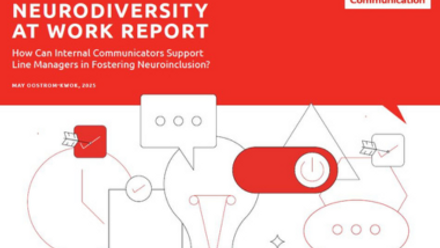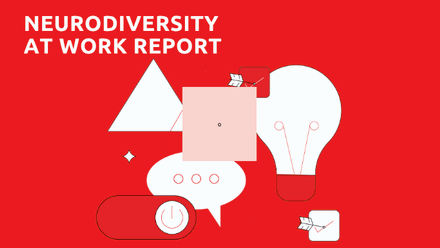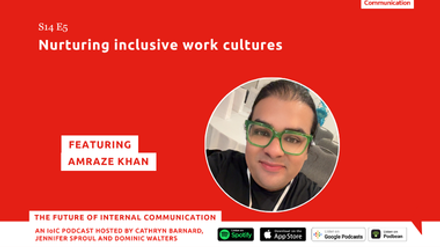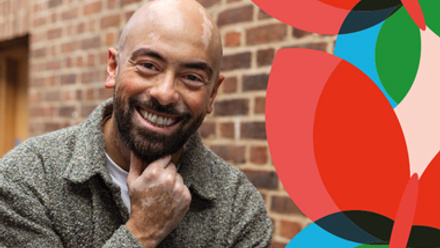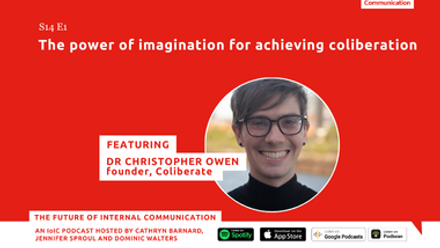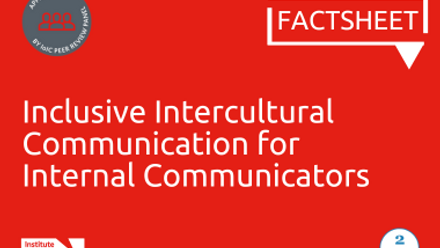LGBTQ+ exec sponsors must steer culture away from casual assumptions

For lasting change and for optimal authenticity, any message about your people has to come from multiple parts of the business and there has to be a real empowerment of the next generation of leaders coming through – even if they are quite junior now.
When leaders say something is of strategic importance, it adds credibility. If your people don’t feel a topic is important to leadership and if leaders don’t set the tone for culture, it’s hard for any employee network to make progress in their goals. That network will feel as if they are agitators or activists for change, rather than feeling welcomed with open arms by the business as part of a change management programme.
Role-modelling a culture of greater awareness
As a society, we are prone to making assumptions – so as leaders, we have to role model the behaviour of not doing that.
When you are asking people to rotate around departments as part of their training and professional development, or go on secondment, or visit other office locations, you have got a career pathway that requires LGBTQ+ employees to come out multiple times at work.
Our trainee lawyers, for example, have four rotations when they join us, and colleagues will ask them well-intentioned questions in the first two weeks that assume things about them and their personal lives. That’s why more than half of LGBTQ+ people who are out at university go back into the closet at work.
The more clearly you celebrate that your workforce is made up of different people with different experiences, the more people will be aware of the language they use. And then colleagues will not feel it is such a hurdle to say, for example, “Actually I have a boyfriend, not a girlfriend.”
No business can afford a reputation or culture based on casual default. Some of the talent you want to attract either won’t want to work with you, or if they do work with you, they aren’t thriving – or they are thriving, but they are using up a lot of energy to do so.
Our people are valuable – and in some ways they are a scarcer resource than ever before. We need to make it possible for people to thrive as their full self within our organisations.
Exec sponsors must listen, learn and be visible
I don’t identify as any of the letters in LGBTQ+, but everyone who is a member of the network is an ally to others. You can’t be all the letters at once. If you are there in the room, it’s because you want to be.
As an exec sponsor, be willing to listen and learn, and be curious. Be clear in your mind: this is about sexuality, gender identity and bringing your whole self to work – not sex or religion.
I’ve found there is some comfort in the discomfort of not knowing if I’ve said something right. There is a lot of power in that. Don’t let your fear of offence stand in your way. You might get some of the language wrong. Let people coach you. I use pronouns and when someone asks why I do that, I have a standard reply that I agreed with the network. You might encounter colleagues who in good faith or in a reactionary way characterise what you are doing in different ways; explain kindly that they have misunderstood and what your intentions are.
Beyond being visible at key events, there are other ways I show my support.
My lanyard is coloured with the Pride flag colours. When I walk around the office, it signals to others that I am an ally.
I have a sticker on the back of my phone that says “Iris”, which is the Greek word for rainbow and the name of DLA Piper’s LGBTQ+ network. I make sure people can see it in meetings – and it also means my phone doesn’t distract me as I keep it upside down. And I never have a meeting where we are talking about people without bringing diversity and inclusion into the conversation, and I always mention Iris.
I also tell people in the LGBTQ+ network that I am happy to offer feedback in their professional development reviews about any contribution they have made.
I send a fortnightly email to colleagues and I often have a thought for the day – sometimes popular, sometimes provocative. It might be around something that happened on that day in LGBTQ+ history, or recommending a book about the pink economy, or it might be some other thought linked to the LGBTQ+ community.
I get a lot of support from internal communication. We are a business of specialists and, of course, they are not only lawyers. Our internal comms and external comms teams and copywriters are excellent. Exec sponsors should be guided by them. They know what is going to work and what won’t.
Enriching professional and personal relationships
Commercially, all my clients are invested in diversity and inclusion (D&I). Some are large multinational companies that expect us to be fully on board in showing we care about these issues, capturing data and participating in events. I have arranged calls to only talk about diversity and inclusion and that has been received positively with clients and has made conversations about business deals easier.
If your clients are also talking about D&I and they can see you are staffing your team with diverse people, they will back you and they are likely to turn to you to solve their problem.
Being an ally makes commercial sense, but it’s also morally the right thing to do. We should never lose sight of the fact that before inclusion was in our best interest as an organisation, these issues were a reality for our people and members of their families.
We are making progress. We have moved from maternity leave to paternity leave, and then parental leave and then adoption leave to being at the birth of your surrogate child. But there is more to do.
For example, there are products and services in the financial world that run algorithms and assumptions that are prejudicial. Some insurance companies use vocal monitoring software to try and identify potential fraudsters if your voice does not match the gender listed for you, and this presents a problem for trans people. It highlights the sheer day-to-day vulnerability of the LGBT community and is a sober reminder that many trans people on their gender expression or transitioning journey may often consider taking their own lives.
Being an exec sponsor has enriched my life more than I could have imagined.
As a personal example, when I first put my “Iris” sticker on my phone, I visited a couple I know and one of them asked what it meant. A few weeks later, the mother called me to say that her daughter had said she wanted to talk to her about the sticker that was on my phone, and it turned out this was to tell her parents that she was bisexual. My friend said she couldn’t thank me enough, as it started a conversation that might not otherwise have happened. The daughter is now talking about marrying her lesbian partner – and the story of my “Iris” sticker still gets mentioned.

